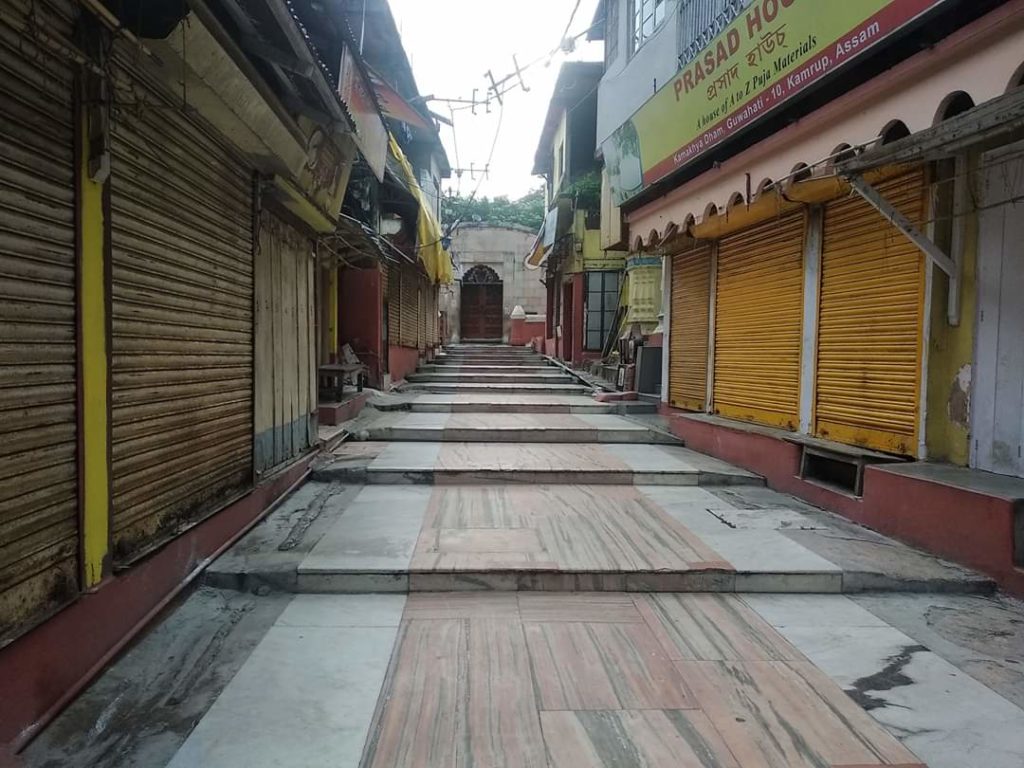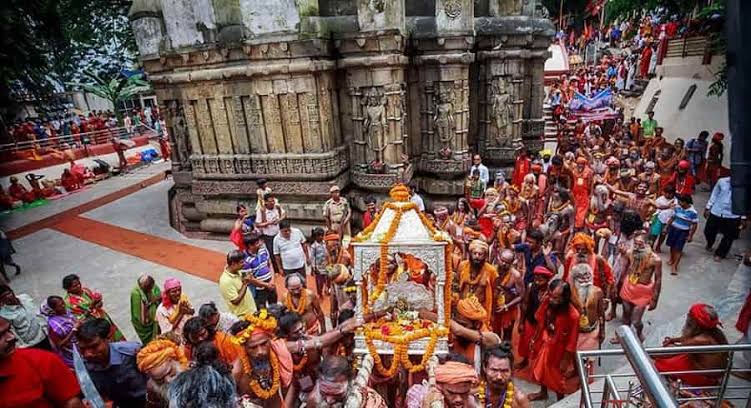Ambubachi is the celebration of the fertility of the mother earth. It is the commemoration of the annual menstrual cycle of the Goddess Kamakhya. The monsoon itself is believed to rejuvenate the planet, making way for more life and prosperity.
Ambubachi Mela Celebration
Ambubachi Mela is one of the largest religious events of the nation and the largest gathering of Shakti worshipers. The four day event takes place in the Kamakhya Temple in Guwahati, Assam. The dates for this year are from the 22nd of June to 25th of June.
It is also call Ameti or the Tantric Fertility Festival and is the most important annual event for the followers of Tantra. Sadhus and Babas who prefer to stay secluded from the civilizations and spend time meditating also take part in this event. Some even show off their physical and psychic powers in this festival.
Local Traditions
No religious activity is carried out in the state for the first three days. All temples are closed and not even religious texts a studied from the Pabriti (commencement) to the Nibriti (ending) of Ambubachi. Not even agricultural activities are carried out during this time.
On the forth day, the priests clean the temple premises and perform rituals to restore the purity of the Goddess. After that the devotees can seek blessings from the Goddess. Other temples also reopen their doors after that and regular activities resume.
Many households do not cook food during these days. Eating seasonal fruits like mangoes, jack-fruit, plums, etc. during these days is also part of the traditions. Non vegetarian food is also not consumed by many.
The festival takes place during the monsoon every year in and around the temple complex. The State and the local administration takes care of the pilgrims who come for this grand celebration. Local businesses and non governmental organisations also help by providing food, water and setting up camps.
Ambubachi Mela and Covid-19

The Ambubachi Mela is more than 500 years old and this is the first time it is happening in the absence of devotees and pilgrims. The temple management committee took this step in order to prevent the further spread of the Covid- 19 pandemic.
The temple gates itself are closed for regular devotees since before lockdown was issued by the Government of India. And it continues even after permission to reopen religious places was given under Unlock 1.
(Feature image source: Travel world Planet)


